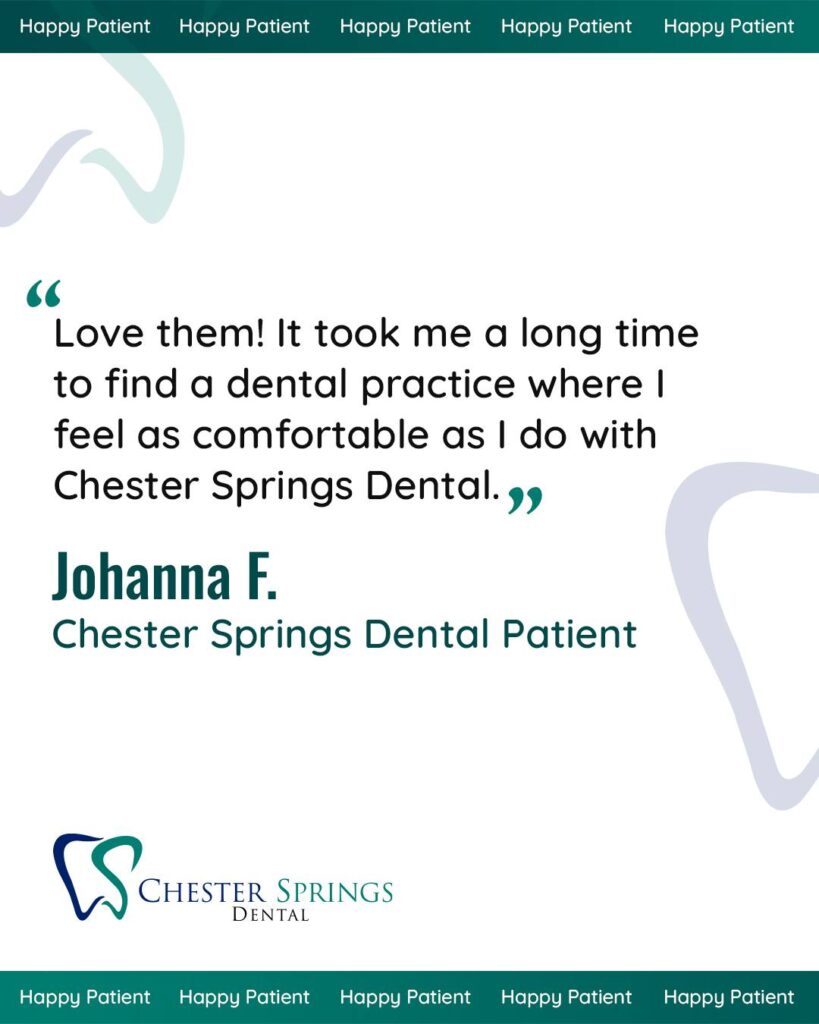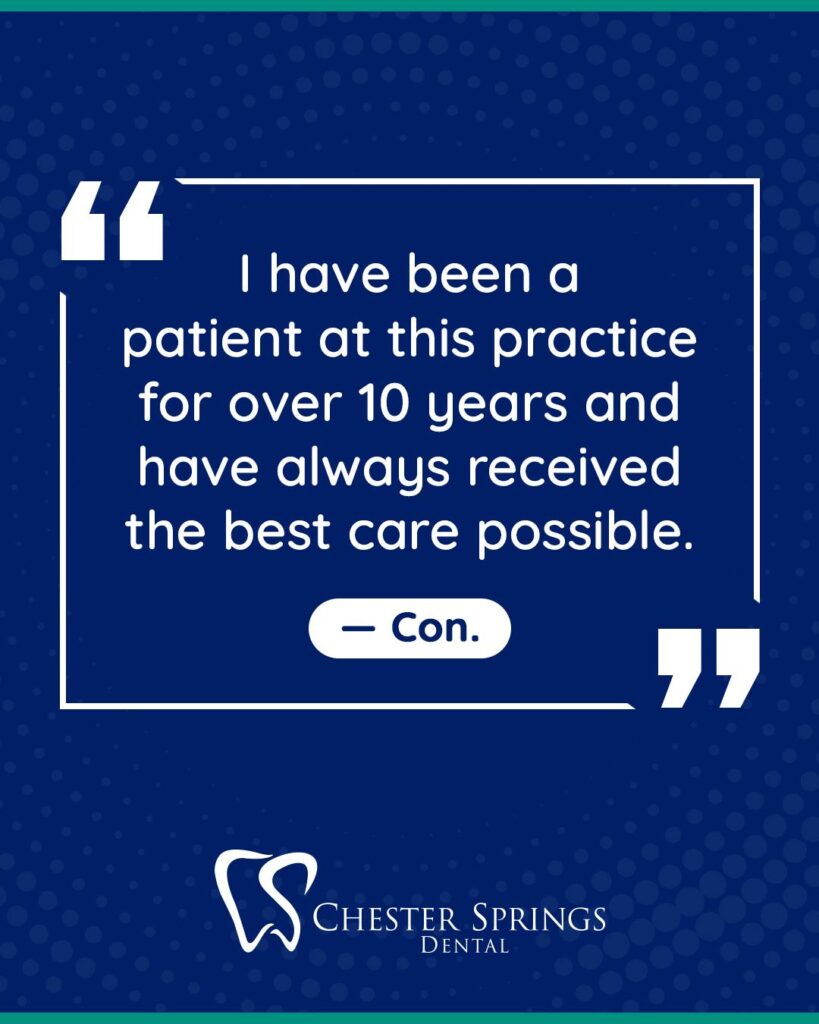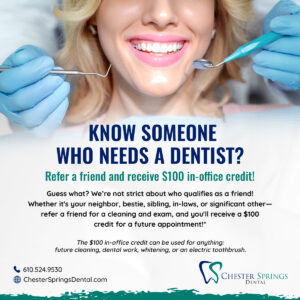Your smile is important at every stage of life—here’s how to protect it.
From your child’s first tooth to maintaining a healthy smile in retirement, regular dental checkups play a critical role in long-term oral health. At Chester Springs Dental, we believe that preventive care is the foundation of a healthy, confident smile—for kids, teens, adults, and seniors alike.
But why are these routine visits so important, especially when you’re not experiencing pain or issues?
Let’s break it down by age—and why it matters:
Children & Teens: Setting the Stage Early
Dental health habits form young. Regular cleanings and exams help:
- Catch issues like cavities or alignment concerns early
- Reinforce good brushing and flossing habits
- Apply preventive treatments like sealants and fluoride
- Build positive associations with going to the dentist
Our team at Chester Springs Dental makes these early visits fun, gentle, and educational—so your child grows up with a smile they’re proud of.
Adults: Maintain, Repair, and Enhance
As an adult, regular dental visits do more than just clean your teeth:
- We monitor for gum disease, early signs of decay, and oral cancer
- Address grinding, wear, or tooth damage caused by stress and lifestyle
- Offer cosmetic options to boost confidence, like whitening or veneers
- Provide restorative solutions such as crowns, fillings, or implants
Whether you’re looking to brighten your smile or fix a lingering dental issue, Dr. Gross and Dr. Hudson offer personalized care and modern treatment options.
Seniors: Preserve and Protect
Later in life, dental health remains essential—especially as medical conditions or medications affect the mouth.
- Regular visits help preserve natural teeth as long as possible
- Monitor changes in gum health and detect dry mouth or oral cancer
- Evaluate dentures or dental implants for comfort and function
Our restorative dentistry services ensure your bite remains strong and your smile stays bright.
No Dental Insurance? No Problem.
We believe cost shouldn’t be a barrier to great care. That’s why we offer a Membership Savings Club for patients without dental insurance. It’s an affordable way to stay on top of your health with regular checkups, cleanings, and more.
Come Meet the Chester Springs Dental Team
We’re more than a dental office—we’re a trusted part of your family’s health journey. Our compassionate and experienced doctors, Dr. Gross and Dr. Hudson, are here to help you feel comfortable, confident, and cared for at every visit.
Whether you’re due for a cleaning, need a cosmetic boost, or have questions about our Membership Savings Club, we’re ready to welcome you here in Exton, PA.
Book your visit today and invest in your smile—no matter your age. 610.524.9530
















